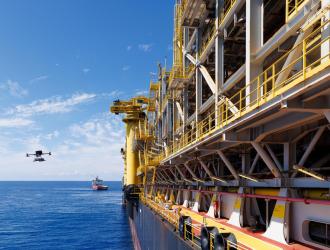02/17/2025
As part of our ambition to reach near-zero methane emissions by 2030, we announced in November 2024 that we had gone a step further in monitoring and reducing our greenhouse gas emissions with the deployment of continuous, real-time detection technologies at all our operated Upstream sites. But these solutions cannot be put into action until they have been tested under real conditions! Our TADI platform meets this objective, not only for our own requirements but also for the needs of academic research and technology suppliers.










